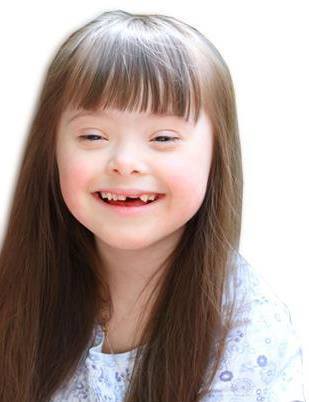Raising Dynamics to Bring Awareness to Down Syndrome

Down syndrome is a chromosomal error leading to developmental and physical delays. One in every 800 babies has Down syndrome (The Canadian Down Syndrome Society).
Human cells contain 23 pairs of chromosomes, and each pair has a chromosome from the mother and father (Mayo Clinic). Down syndrome occurs at conception, not during pregnancy (National Association for Down Syndrome), and is caused by one of three types of error in cell division involving chromosome 21. The three cell division abnormalities result in three genetic variations that can cause Down syndrome (Mayo Clinic):
(1) Trisomy 21. More than 90% of cases of Down syndrome is caused by trisomy 21. Trisomy 21 happens when an individual has three copies of chromosome 21 instead of two. This form of Down syndrome is caused by abnormal cell division during the development of the sperm cell or the egg cell (Mayo Clinic).
(2) Mosaic Down syndrome. This rare form of Down syndrome occurs when individuals have some cells with an extra copy of chromosome 21, and is caused by abnormal cell division after fertilization. (Mayo Clinic).
(3) Translocation Down syndrome. Uncommonly, sometimes a part of chromosome 21 can become attached (translocated) onto another chromosome before or at conception, resulting in individuals having the usual two copies of chromosome 21, and additional material from chromosome 21 attached to the translocated chromosome (Mayo Clinic).
During pregnancy, routine screening for Down syndrome is conducted with ultrasounds and blood tests. Although chances of Down syndrome increases with maternal age, 80% children with Down syndrome are born to women younger than 35 (The Canadian Down Syndrome Society). For newborns, Down syndrome can be initially diagnosed based on physical characteristics such as low muscle tone, a single crease across the palm of the hand, a slightly flattened facial profile and an upward slant to the eyes (National Association for Down Syndrome).
People with Down syndrome are more susceptible to medical issues such as sleep apnea, infectious diseases and heart defects (Mayo Clinic). Compared to the 0.8% incidence of congenital heart disease in the general population, 40 to 50% of people with Down syndrome have heart defects at birth (American Academy of Pediatrics, 2001; Canadian Down Syndrome Society, 2006, Alberta Health Services).
Though research, so far, has been unable to confirm a cause, or find treatment for Down syndrome, individuals with Down syndrome live happy and productive lives. AMT encourages the community to better understand Down syndrome, and promotes early intervention to help make an impactful difference in the lives of those with Down syndrome. Contact us to learn how music therapy can serve this populations by creating aids to developmental and physical growth and improvement.


